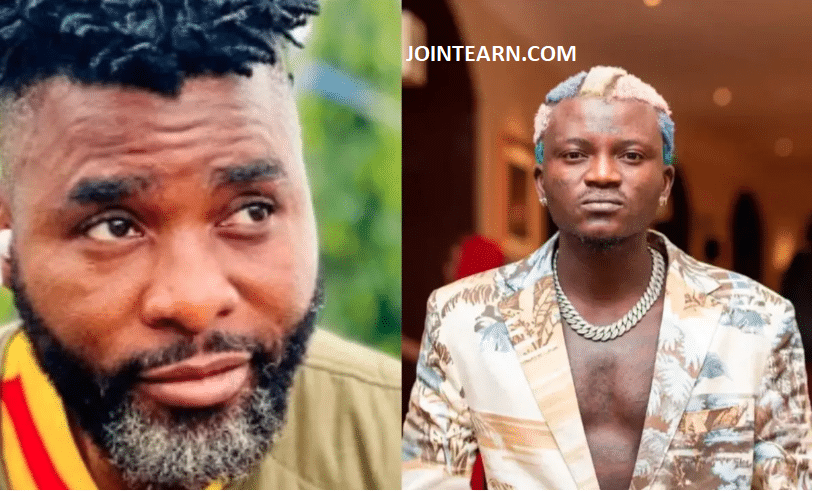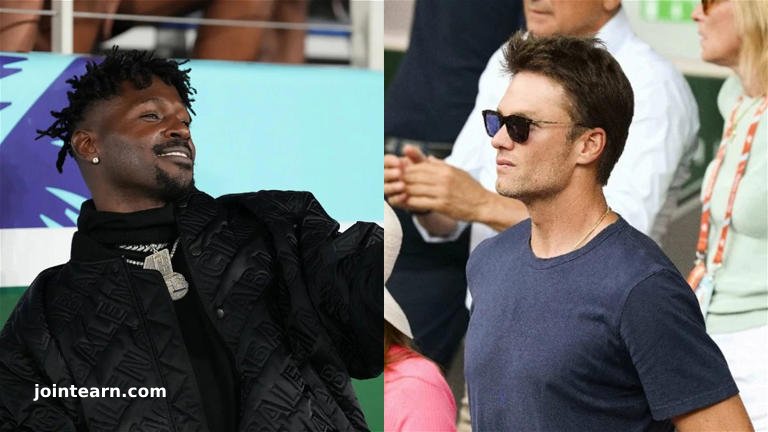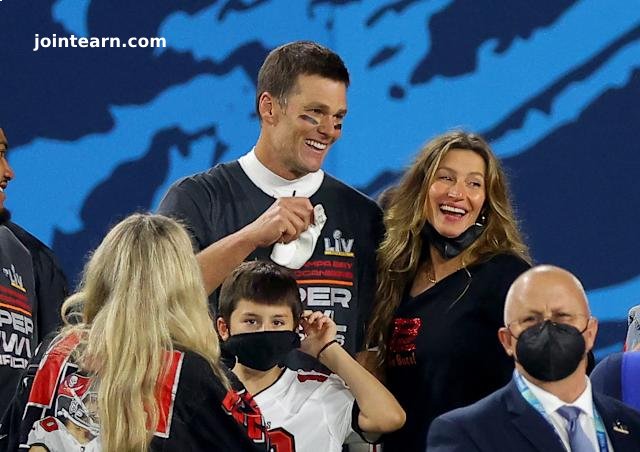Controversial Nigerian singer Habeeb Okikiola, popularly known as Portable, has weighed in on the growing conversation surrounding the recent Africa Magic Viewers’ Choice Awards (AMVCA), particularly in response to the omission of veteran actor Ibrahim Chatta from this year’s nominations list. The outspoken artiste didn’t mince words as he took to social media to criticize what he described as an unfair and biased awards system where recognition is allegedly influenced by money and popularity rather than merit and talent.
Portable, known for his bold and unfiltered commentary, expressed his displeasure in a video that quickly went viral across various social media platforms. Reacting to the outcry over Ibrahim Chatta being snubbed once again despite his consistent and powerful performances in the Nigerian movie industry, Portable stated, “We no fit use money buy award like some people. Some of us dey hustle with real talent, but dem go always give award to people wey don pay for am or wey dem dey like.”
The singer went on to praise Ibrahim Chatta for his dedication and skill as an actor, describing him as one of the most talented figures in Nollywood whose contributions continue to be overlooked. “Ibrahim Chatta na better actor. Make una no lie. That man sabi act pass plenty people wey dey collect award every year. E no dey fair,” he said.
The AMVCA, one of Africa’s most prestigious award shows celebrating excellence in film and television, has recently faced criticism from fans and industry insiders who believe the process lacks transparency and inclusivity. While the event showcased an array of glamorous appearances and recognized various achievements in acting, directing, and production, many viewers were quick to notice the absence of Ibrahim Chatta from the nominations despite a standout year marked by multiple compelling roles in Yoruba-language films.
Social media platforms were flooded with reactions shortly after the nomination list was released. Many fans pointed out that Ibrahim Chatta has consistently delivered exceptional performances in indigenous films and deserves equal recognition alongside his counterparts in English-language productions. The situation has rekindled the ongoing debate about the marginalization of Yoruba actors and films in mainstream Nigerian award ceremonies.
Portable’s reaction further fueled the discussion. Known for stirring conversations with his eccentric style and unorthodox views, he used the AMVCA snub as a moment to call out what he believes is the deeper issue of elitism and favoritism within the entertainment industry.
“Make dem dey give award to who deserve am,” Portable continued in his video. “No be by packaging or by who sabi who. Na real work we dey do. If dem go dey ignore people wey dey do better work because dem no get connection or dem no bribe person, then wetin be the point of the award?”
While some critics dismissed Portable’s comments as attention-seeking, others applauded him for using his platform to speak out on an issue that many in the industry are hesitant to address openly. His boldness struck a chord with numerous supporters who feel the system needs to be re-evaluated to give room for more diverse and inclusive recognition.
Meanwhile, Ibrahim Chatta has not directly responded to the uproar. However, a cryptic post shared on his social media shortly after the AMVCA nominations were announced read: “I leave everything to God.” This simple yet powerful statement only deepened the emotional connection fans feel toward the actor and his perceived marginalization.
Chatta, who has been active in Nollywood for over two decades, is revered for his dynamic acting, often portraying deep and emotional characters in Yoruba films. Despite his popularity and consistent delivery, his name rarely appears on major award nomination lists, a trend many find baffling and unfair.
Portable’s outburst has led to a wider call for reforms in how awards are organized and recipients selected. Fans and stakeholders are demanding that local languages and indigenous film productions receive the same level of consideration as English-language content. According to them, excellence in performance should transcend language, popularity, or financial influence.
The Nigerian film industry, often referred to as Nollywood, is one of the largest in the world in terms of output. However, issues of representation, recognition, and reward distribution have long been a source of contention. From accusations of tribal bias to claims of monetary influence, the integrity of award institutions remains under scrutiny.
As the dust begins to settle from this year’s AMVCA ceremony, Portable’s comments may have ignited a necessary conversation — one that challenges the status quo and advocates for a more balanced and merit-based system. Whether or not these conversations lead to concrete changes in future award processes remains to be seen, but one thing is clear: the call for fairness and transparency is growing louder, and voices like Portable’s are helping to amplify it.
In the end, the conversation is not just about one actor or one award. It is about the broader need to recognize the diversity, talent, and richness of Nigeria’s creative landscape — regardless of the language spoken, the level of fame, or the financial backing behind a name.












